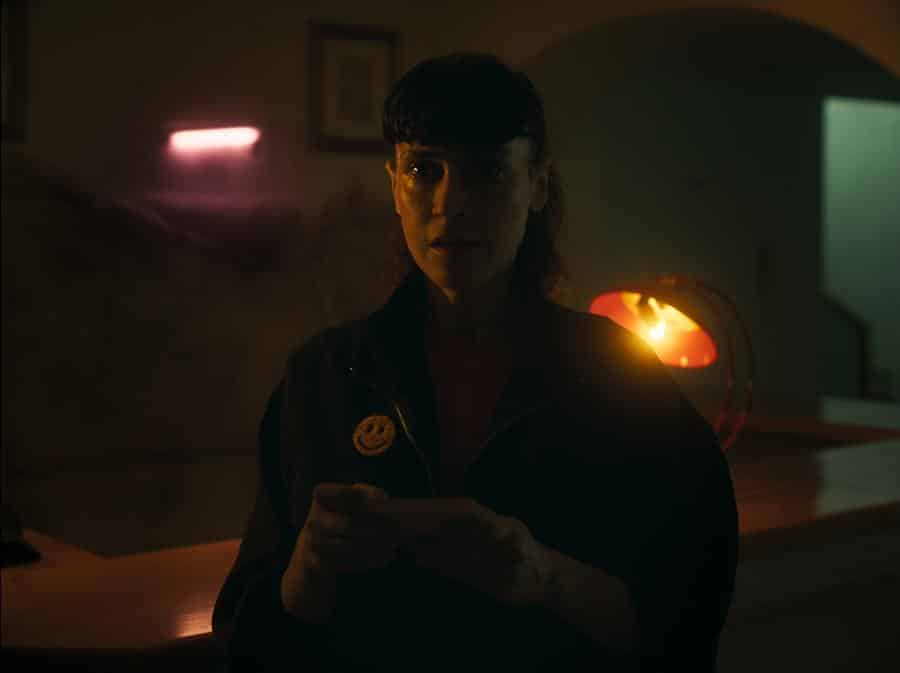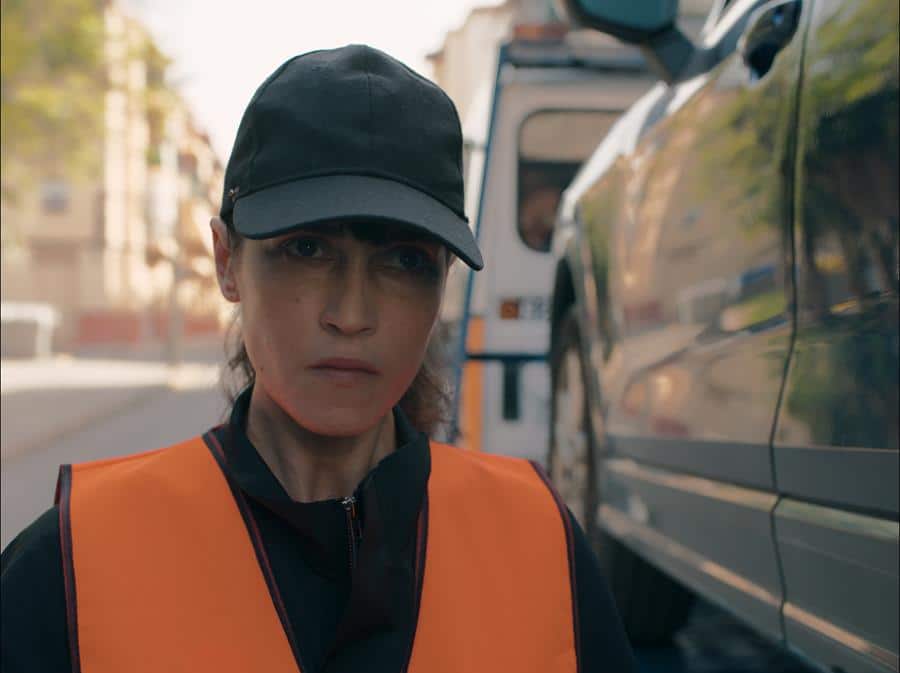
Director Lucía Forner Segarra has a run of titles under her belt which are named for their female protagonists. Marta (2018) concerns a woman who aspires to be a serial killer; Dana (2020) tackles the discomfiting subjects of rape/revenge and (lacklustre) justice; completing this trilogy, her most recent short Berta (2024) takes us once again into such unpleasant territory, blending together some aspects of the plotlines which informed Segarra’s earlier films into another, clever, timely study. If, on paper, these plotlines sound tried-and-tested, then forget all about that: with a few deft moves and the powers of a razor-sharp script, these films both utilise horror and exploitation tropes whilst reconfiguring them, repurposing them. Berta may only be around sixteen minutes long, but it wrings something significant and thought-provoking from every on-screen moment.
Berta (Nerea Barros) works for a car impound service: at least, we think she does. There are always tantalising doubts here. She has access to a flatbed truck at least, and when the opening credits roll, she’s busy affixing a vehicle to her own – although, by using an online tutorial. The car owner arrives back just in time to challenge her; characteristically for him, as we learn, he spends some time denying he’s done anything wrong, before hesitantly accepting his parking violation and agreeing to accompany Berta back to her depot to pay off his fine and retrieve the car. But here’s where it gets nasty.
He does accompany her, but not as expected; Berta has other ideas and a separate agenda. Later, as they talk, what is striking – and a credit to the script – is that this man (Elías González) is very plausible. Is she in fact mistaken? Unhinged, even? There’s a few moments there where this question hangs in the air – and it’s a real credit to the film that it can achieve this in next to no time spent. His righteous protestations dissolve as time ticks on, but he has clearly made an artform out of seeming so reasonable. Even his later admissions are presented, again very cleverly, as if Berta is making a fuss over nothing. Her perceptions are off, that’s all. In presenting us with this, Segarra has created a kind of warped Everyman figure which feels instantly recognisable – a cultural archetype. His words and deeds place the audience on a level with our protagonist, who is played with formidable power by Barros. Berta is nervous at first, fumbling and fussing over the vehicle ruse, but as her certainty grows, she clearly rises to the challenge she has set herself, whereas Alex steadily panics.
I’ve mentioned many times that the appearance on-screen of a very specific trope – the old tied-to-something routine – has come to leave me cold, so formulaic has it seemingly become (and overnight, too). And a few filmmakers have tried to break away from the whole ‘woman strapped to chair’ thing, with varying levels of success – but what Segarra does with it is inspired. Not only because it all comes grounded in a disturbing and engrossing framework, but because it dispenses with everything you might be expecting (momentarily shifting emphasis from Berta to Alex). There’s a killer punchline, and room for pithy, impactful points along the way.
Berta doesn’t hector its audience because it doesn’t need to: what it has done is to find a smart, savage, at times comical route through its sinister subject matter that ends by feeling valedictory, with a clear set of character arcs and lots of ideas, expertly executed. It is very, very good at what it sets out to do. Whilst part of me wishes that Segarra would translate these skills to a feature-length film in future, equally, the short film format is used so well here that it feels counterproductive to wish it all away.
Berta (2024) is part of this year’s Fantasia International Film Festival.
